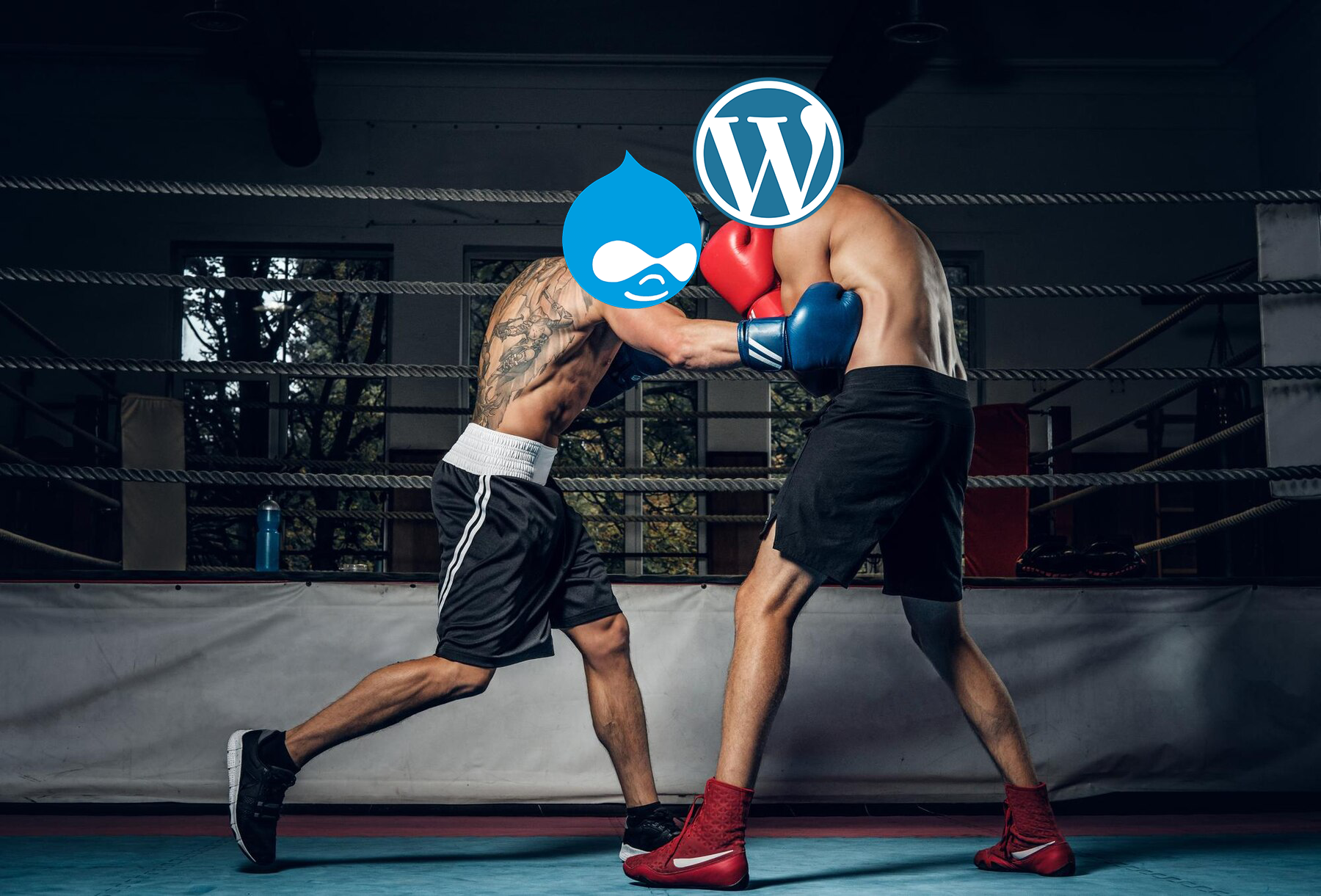Drupal vs. WordPress: A Detailed CMS Comparison for 2023

Both Drupal and WordPress have made significant strides since their inception, becoming the leading content management systems (CMS) in the digital landscape. Choosing between them can be a challenge given the strengths each platform offers. This 2023 comparison delves into their unique features, differences, and use-cases to help you make an informed decision.
Overview
- Drupal: Launched in 2001, Drupal is an open-source CMS known for its flexibility, scalability, and robustness, often favored for complex and high-traffic sites.
- WordPress: Launched in 2003, WordPress began as a blogging platform but has since evolved into a versatile CMS, powering over 40% of the web.
Ease of Use
- Drupal: It offers a steeper learning curve, particularly for those unfamiliar with web development. However, with Drupal's latest versions, user-friendliness has improved considerably.
- WordPress: Known for its intuitive interface, WordPress is often lauded for its ease of use, making it a favorite among beginners and non-developers.
Flexibility and Customization
- Drupal: With modules (akin to plugins in WordPress), distributions, and a detailed taxonomy system, Drupal is highly customizable and adaptable to varied web needs.
- WordPress: With thousands of plugins and themes, WordPress offers extensive customization options. The Gutenberg block editor, introduced in WordPress 5.0, provides more flexibility in content design.
Performance
- Drupal: Built for performance, Drupal sites can handle large volumes of content and high traffic if optimized correctly.
- WordPress: While WordPress can run high-traffic sites, performance optimization (e.g., caching plugins, content delivery networks) becomes crucial as site complexity grows.
Security
- Drupal: Renowned for enterprise-level security, Drupal often gets chosen for government and corporate websites. Regular security patches and a vigilant community contribute to its security prowess.
- WordPress: While WordPress is secure by design, its popularity makes it a frequent target for attacks. Maintaining security requires regular updates, quality plugins, and best security practices.
SEO Capabilities
- Drupal: With modules like Pathauto and Metatag, Drupal offers strong SEO customization. Its content architecture and taxonomy system can benefit SEO when used effectively.
- WordPress: With plugins like Yoast SEO and All in One SEO Pack, WordPress makes SEO implementation straightforward for users of all levels.
E-commerce Capabilities
- Drupal: Drupal Commerce is a powerful e-commerce solution, suitable for complex online stores with custom requirements.
- WordPress: WooCommerce, a WordPress plugin, dominates the e-commerce scene, offering a user-friendly way to set up online stores of varying sizes.
Development Community and Support
- Drupal: Boasts a dedicated and active community. The Drupal.org website provides extensive documentation, forums, and distribution options.
- WordPress: The massive global community behind WordPress ensures abundant online resources, forums, tutorials, and support options.
Cost
- Drupal: Being open-source, Drupal is free, but costs can arise from hosting, custom development, and premium modules/themes.
- WordPress: WordPress itself is free, but expenses can come from hosting, premium plugins, themes, and custom development.
Ideal Use Cases
- Drupal: Best for complex, data-heavy websites requiring detailed user permissions, multilingual capabilities, or custom content structures. Examples include university sites, government portals, and large news outlets.
- WordPress: Ideal for bloggers, small to medium businesses, portfolio sites, and even e-commerce (via WooCommerce). Its user-friendly nature makes it a go-to for non-developers.
Conclusion
Drupal and WordPress, while both powerful CMSs, cater to different audiences and project requirements. Drupal's complexity and flexibility make it ideal for large-scale, custom projects. In contrast, WordPress's user-friendliness and vast ecosystem make it suitable for a broader range of applications, especially where ease of use is paramount.
When choosing between the two, consider your project's long-term goals, the technical expertise available, and specific website needs. Both platforms, when used to their strengths, can produce exceptional digital experiences.










